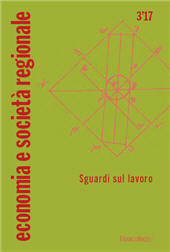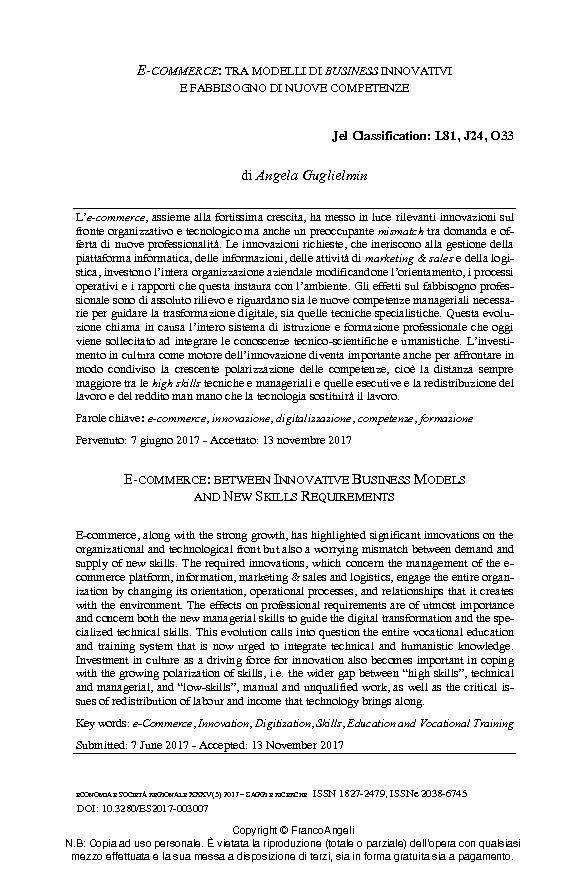E-Commerce : tra modelli di business innovativi e fabbisogno di nuove competenze
131-147 p.
L'e-commerce, assieme alla fortissima crescita, ha messo in luce rilevanti innovazioni sul fronte organizzativo e tecnologico ma anche un preoccupante mismatch tra domanda e offerta di nuove professionalità. Le innovazioni richieste, che ineriscono alla gestione della piattaforma informatica, delle informazioni, delle attività di marketing & sales e della logistica, investono l'intera organizzazione aziendale modificandone l'orientamento, i processi operativi e i rapporti che questa instaura con l'ambiente. Gli effetti sul fabbisogno professionale sono di assoluto rilievo e riguardano sia le nuove competenze manageriali necessarie per guidare la trasformazione digitale, sia quelle tecniche specialistiche. Questa evoluzione chiama in causa l'intero sistema di istruzione e formazione professionale che oggi viene sollecitato ad integrare le conoscenze tecnico-scientifiche e umanistiche.
L'investimento in cultura come motore dell'innovazione diventa importante anche per affrontare in modo condiviso la crescente polarizzazione delle competenze, cioè la distanza sempre maggiore tra le high skills tecniche e manageriali e quelle esecutive e la redistribuzione del lavoro e del reddito man mano che la tecnologia sostituirà il lavoro. [Testo dell'editore].
E-commerce, along with the strong growth, has highlighted significant innovations on the organizational and technological front but also a worrying mismatch between demand and supply of new skills. The required innovations, which concern the management of the ecommerce platform, information, marketing & sales and logistics, engage the entire organization by changing its orientation, operational processes, and relationships that it creates with the environment. The effects on professional requirements are of utmost importance and concern both the new managerial skills to guide the digital transformation and the specialized technical skills. This evolution calls into question the entire vocational education and training system that is now urged to integrate technical and humanistic knowledge.
Investment in culture as a driving force for innovation also becomes important in coping with the growing polarization of skills, i.e. the wider gap between "high skills", technical and managerial, and "low-skills", manual and unqualified work, as well as the critical issues of redistribution of labour and income that technology brings along. [Publishers' text].
Forma parte de
Economia e società regionale : 3, 2017-
Artículos del mismo número (disponibles individualmente)
-
Información
Código DOI: 10.3280/ES2017-003007
ISSN: 2038-6745
KEYWORDS
- E-commerce, innovazione, digitalizzazione, competenze, formazione
- E-Commerce, Innovation, Digitization, Skills, Education and Vocational Training



